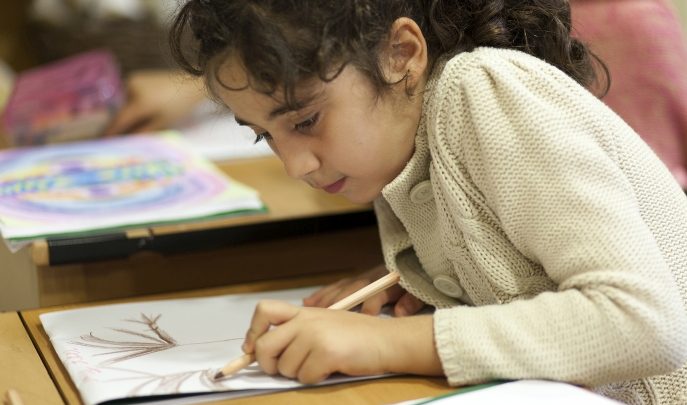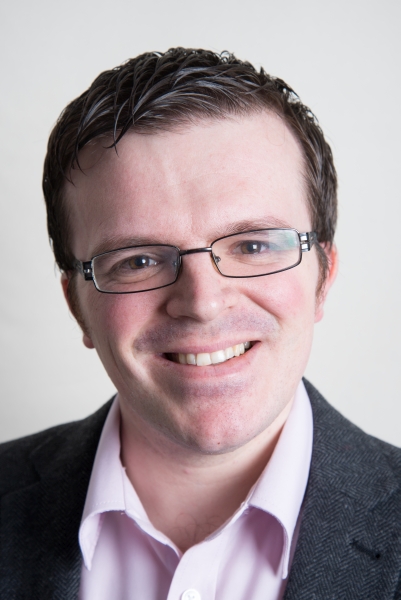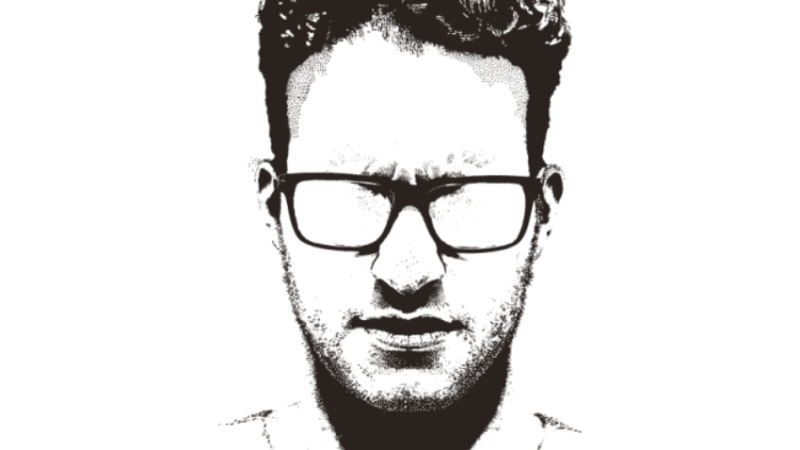“Education is a journey, not a race” – The Steiner approach to schooling

Is the Steiner approach of prioritising imagination over knowledge and technology the key to producing well-rounded adults?

Is technology ‘good’ for children?
The current generation of young people will never know a world without smartphones, iPads and the internet. This will might make them the most tech-savvy generation yet – but for some, there’s a lingering fear that this isn’t an entirely positive development.
Research from AO has shown that children spend 17 hours a week in front of a screen – almost double the amount of time they spend playing outside – while one in three parents worry that games consoles and other forms of technology are affecting children’s development in a negative way.
Head, heart and hands
Even in schools, children in nursery and Early Years classes are increasingly encouraged to get to grips with ‘devices’ at the very start of their education – but not in all schools.
There are currently 35 ‘Steiner schools’ in Britain and Ireland, and many more worldwide, that take a very different approach to learning. Schools operating under this banner take inspiration from the Austrian polymath Rudolph Steiner’s views on education. Steiner, who died in 1925, argued that ‘Education is a journey, not a race’ and said it was necessary to provide ‘Education for the head, heart and hands’.
The schools have evolved since Steiner’s day but they still retain this ethos – which means no computers in classrooms until children reach 12 or 13.
As Kevin Avison, executive officer of the Steiner Waldorf Schools Fellowship, explains, “We are certainly not against young people working with computers, but we feel it should be later. We actually want young people to have a sense of ‘I can do things for myself’ and ‘I know why the computer works that way’.’
By contrast, he feels the mainstream schooling system has gone too far in its use of technology for young pupils, adding, “Quite honestly, we have taken a wrong turn where this is concerned and it just encourages consumerism.”
Making connections
At The Iona School in Nottingham, this principle can be seen in action. It’s a primary Steiner school that provides pupils with no access to computers at all, yet was recently graded as ‘Outstanding’ by the School Inspection Service.
Richard Moore, who helped found the school in 1985, says, “It’s about children being involved in the process. It’s not just that things happen around them, but that they are connected to it.
It’s not that they necessarily build their own computer – simply that they make a connection to it, understanding where it comes from and where it fits into the human story.
“There is a lot of evidence to say that screens are not beneficial for children. Technology should be useful to us – we should possess it, rather than let it possess us.”
Mr Moore came to the school after teaching in mainstream education and had sent his eldest daughter to a Steiner school after being impressed by its ethos. He believes the Steiner approach, with its emphasis on creativity over computers, doesn’t inhibit a child’s ability to flourish in a digital world – far from it, in fact.
Both he and Avison feel that Steiner pupils are, if anything, more likely to possess a flair for working with IT later on. As Moore explains, “One of my former pupils, who is in his 20s now, works for IBM. There are plenty of examples of pupils who work in that sphere of technology.”
He further recalls a conversation he once had with a university lecturer, who told him about the limitations of many modern students.
“He said the problem he had at university was that when pupils came to him at 18, they had spent for too much time on computers. His experience was that they did not have their imaginations functioning as well as they should.
“We often look to Einstein’s quote that ‘Imagination is more important than knowledge’. It’s true. Whatever facts and knowledge you have got, you still need that to use that knowledge. We create the conditions in which children can be imaginative.”
In place of computing, the Iona School instead focuses on activities such as bread making, painting and knitting. For the latter, pupils will first visit a farm to see a sheep being sheared.
They will then be given a demonstration of how wool is spun into yarn, followed by an opportunity to make their own knitting needles. It’s a practical example of the ‘connection’ with the outside world and importance of ‘process’ espoused by Steiner schools.
A safe space
Days at the £5,400 a year Iona School commence with song started by the teacher, with the pupils joining in. Lessons in reading, writing and numeracy are all then taught in as visual and creative a way as possible.
According to Kevin Avison “A key point is working with children’s imagination; giving them the tools and activities to express themselves is very important to us. In Early Years, the toys children are given are toys that are not fixed in form – we tend to prefer things like wooden blocks that can be built with and moved about.”
For Richard Moore, mainstream schools – and society at large – are often in too much of a rush to expose children to ideas and concepts before they are ready.
He feels they should be given a safe space in which to explore and experience the world, before they possess the strength and intellect needed to handle complex and worrying concepts – such as news of events in Syria, for example.
As he puts it, “It’s a bit like having a plant and keeping it in the greenhouse from the frost, until it is strong enough to go outside. It’s not so much about opening their minds, but about keeping their mind open.
‘There’s a danger, I think, that formal education done too soon actually closes them off. Education should be about keeping minds open and encouraging them to be inquiring.”
For Avison, the Steiner approach is also about stimulating connections in the brain and fostering social skills among pupils. He sees this approach to education as helping to prevent young children from simply being taught to pass exams and becoming a statistic – currently a topic of much debate within mainstream education.
Indeed, the NUT has argued that pupils in the UK are ‘The most tested in Europe’ and that this culture is harming their development.
“Our aim is always to develop the person,” stresses Moore. “A well-developed person can meet the challenges in front of them. It’s not about pre-fabricated challenges designed to meet the exams. In principle, we are trying to develop young people who can find their own decision.
“There is a sense that somehow government has found it necessary to become ‘formers’ of young people and what they learn. I think the testing system is about pushing and prodding people and acting to an idea of what people should be like. We certainly want young people to have all the experiences they need, but I think things have become for too deterministic.”
He adds, “We try to give children space and time and don’t treat education as a race to an arbitrary finishing post. We really need rounded people who can come at a problem from different angles.”
Missing school during holidays
The Iona School’s latest report from the School Inspection Service, published in February this year, would appear to support the pair’s view that this approach can bring about success. The school earned ‘Outstanding’ grades across the board.
Inspector Christine Graham wrote that, “Teaching and the exceptionally good curriculum promote a love of learning in pupils. They are focused, they listen exceptionally well and they possess a wealth of learning skills which help them to persevere with even the most challenging tasks and make very good progress.”
She went on to add, “Parents are overwhelmingly supportive of the school and many provided touching examples of how the school had enriched their children’s lives. Pupils are rightly appreciative of the inspirational teaching they receive and the opportunities afforded to them by the excellent curriculum. A number of pupils said that they missed school during holidays, and were delighted when it was time to return.”
Pupils enjoying school – and one with no computers? It would seem so.
For more information, visit theionaschool.org.uk or follow @Ionaschoolnotts.












